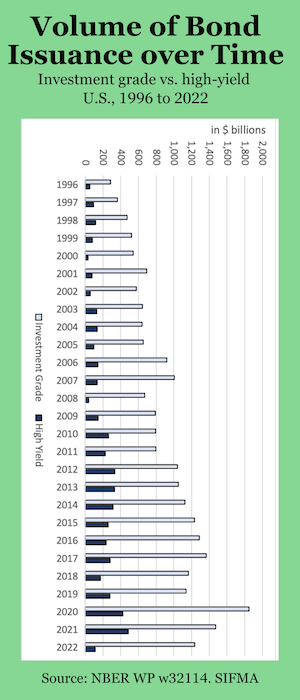After the strong growth of the robo-advisory approach in recent years, promoted by numerous start-ups worldwide and adopted by a sizeable number of wealth managers, a new ‘sub-species’ has emerged: the hybrid robo/personal contact service, which adds a new software component to the client advisory process.
This is a key finding of a new report, “Hybrid Robos: how combining human and automated wealth advice delivers superior results and gains market share,” from the Swiss research company MyPrivateBanking Research.
MyPrivateBanking Research estimates that assets managed by hybrid robo services will grow to $3.7 trillion assets worldwide by 2020 and to $16.3 trillion by 2025, or just over 10% of the world’s investable wealth. By comparison, “pure” robo-advisors (completely automated without personal service added on) will have an estimated market share of only 1.6% of the total global wealth at that point.
“Several major players have announced that they will reveal their hybrid offerings [during 2016] and many more wealth managers are currently working through the issues of hybrid robo adoption,” said Francis Groves, senior analyst of MyPrivateBanking Research, in a release.
Fueling the hybrid-robo trend, aside from the interest generated by the first-wave robo-advisors, will be “the launch of a substantial range of new B2B technology providers, some focused only on the banking and wealth management industries and others with a broader scope,” the report said.
“In the analysts’ view, the next 12 to 18 months will provide numerous demonstrations of the impact of the new (white label) technology providers and robo/conventional partnering on wealth management,” the release said. MyPrivateBanking Research also expects to see a surge in “quasi-wealth management services” from pension providers, fund managers and retail banks not usually involved in wealth management.
“The robo model of investment portfolio management will be good enough in the eyes of a larger proportion of investors than the wealth management industry itself yet seems ready to recognize,” Groves said in a statement. ”Hybrid robo-advisory services will increase the efficiency of advisors, in terms of numbers of clients served per professional, and the increasing numbers of hybrid solutions will also have a significant downwards effect on the client charges the market will bear.”
The report recommends 20 different steps wealth managers can take to prepare for the hybrid revolution, including:
- Wealth managers should be wary of assuming that one or more robo-advisory elements can be just ‘added on’ to an existing service.
- Especially in the retail and affluent segments, ties with non-financial retail services of various kinds will be of increasing importance for the success of robo-advisory client recruitment.
- For most wealth managers the path to a hybrid solution will have several stages; but clients’ awareness of the capabilities of automation will be increasing rapidly in the next few years.
- In the higher wealth segments, wealth managers who automate ‘behind the scenes’ processes will be in the best position to introduce client-facing robo elements when they’ve established their client-base is ready.
The report shows how various robo-advisor developments can be combined with personal contact from professionals. It offers five case studies of hybrid robo innovators, each showing a different pathway to a hybrid solution. The report also projects the growth of hybrid robo advice over the next nine years with a breakdown between North America and the rest of the world and between client wealth segments.
© 2016 RIJ Publishing LLC. All rights reserved.


